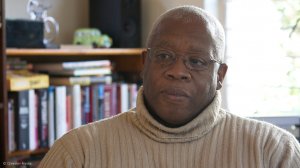Is the South African economy on the brink of disaster? Or, to put it differently, is South Africa itself on the brink of disaster?
Last month, ratings agency Standard and Poor’s downgraded the sovereign rating of our country to just one notch above investment grade, while its counterpart, Fitch, downgraded the outlook to ‘negative’. A few days after these downgrades, Standard and Poor’s downgraded the four biggest banks in South Africa. This happened during the five-month-long strike in the platinum sector, the longest strike in the history of this country. At the time of writing, the strike by members of the National Union of Metalworkers of South Africa (Numsa) had gone into its second day.
All of this came hot on the heels of indications that, in the foreseeable future, the South African economy is probably going to continue its underperformance. In the first quarter of 2014, the economy suffered a 0.6% contraction in gross domestic product (GDP), with the mining sector, which itself suffered a contraction of 24.7%, contributing 1.3% to the decline. The question is whether the South African economy is on the verge of a second recession since 2009. South African Reserve Bank governor Gill Marcus and Finance Minister Nhlanhla Nene have poured cold water on suggestions by some economists that the South African economy is going to experience another GDP contraction in the second quarter. Popular radio talkshow host Tim Modise, in response to assurances by the central bank governor that the economy is not going to contract in the second quarter, half-jokingly said that the governor may be asking us to worry then, not now.
I choose to worry now. My concerns are less about the possibility of another recession and much more about whether, as a country, we have it in us to unite behind an appropriate response to the economic challenges which face us. Since 1990, we have shown an amazing ability to pull ourselves from the brink but, as they say in Zulu, okungapheli kuyahlola (everything eventually comes to an end). So far, we have been successful in gambling with our future because we have been able to pull ourselves from the brink in the nick of time. But there must come a time when we realise that playing Russian roulette with our future is extremely dangerous and unwise.
It is now common cause that South Africa suffers from a serious leadership deficit and chronic lack of leadership across the board. That notwithstanding, I am beginning to gravitate quite strongly towards the view that what we lack more is wisdom. It is this lack of wisdom that causes us to engage in mutually destructive talk and behaviour at a time when South Africa is faced with the real danger of sliding towards a perfect storm of the discontent of the poor, the working poor, the working class and the middle class. We continue to engage with one another in ways that are based on a refusal to acknowledge that attempts to maximise narrow interests by business and labour will lead to their mutual destruction.
Further, we refuse to understand that the trust deficit between business and labour has resulted from the fact that, in the past, workers did not sufficiently share in the eating of the fruit of good economic times. We can argue that labour in South Africa is too expensive until we are blue in the face, but this will not detract from the fact that it is expensive in relative but not in absolute terms. In absolute terms, that is, in relation to what it costs to live a decent life, it cannot be argued credibly that workers in this country earn a living wage.
That said, there is a need to see the world as it is, instead of pretending that your struggles have turned it into what you want it to be. At the moment, the perceptions of domestic and international investors drive important decisions about the economy and this means that the wrangling by social partners in our economic space may cause decisions to be taken that are dangerous for both business and workers.
The problem is that this argument has been used for too long as a canon against the heads of workers when the alternative has always been the building of trust through demonstrable evidence that the social partners are prepared to make unpalatable concessions and compromises in the short term to create conditions for growth in the medium to long term. Unfortunately, workers no longer believe the promise of inclusive growth – hence, the preparedness to go on strike until their children suffer the indignity of poverty and hunger.
But, in our search for solutions, we must not pretend that power is distributed equally between business and workers.
EMAIL THIS ARTICLE SAVE THIS ARTICLE
To subscribe email subscriptions@creamermedia.co.za or click here
To advertise email advertising@creamermedia.co.za or click here










